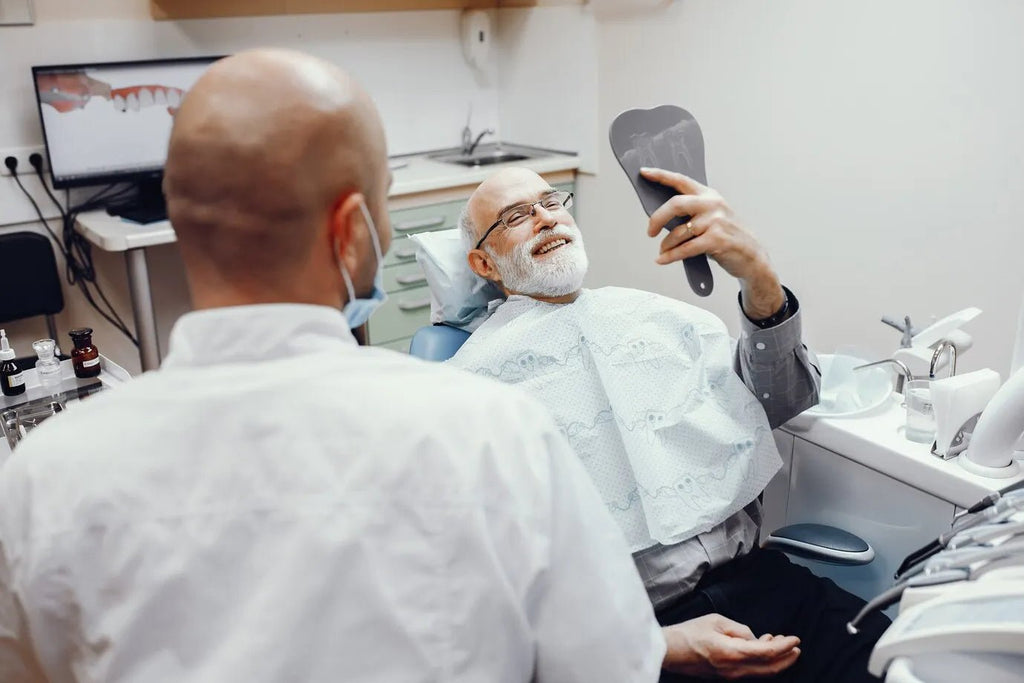
What Can a Dental Hygienist Do to Prevent Gum Disease?

What Can a Dental Hygienist Do to Prevent Gum Disease?
Gum disease is one of the most common problems that can affect your smile and overall health. It starts with something as simple as plaque buildup, and if it’s not dealt with, it can lead to more serious problems like gum infection, tooth loss, and even heart issues! But the good news is, it’s preventable. One of the key people who help in preventing gum disease is your dental hygienist. They are your oral health partner who not only cleans your teeth but also ensures your gums stay healthy. Let’s explore how a dental hygienist helps keep gum disease at bay and what you can do to help too.
What is Gum Disease?
Before diving into what dental hygienists do, let’s first understand what gum disease is. It all begins with plaque a sticky, soft film of bacteria that forms on your teeth. If you don’t remove this plaque by brushing and flossing, it can harden and turn into tartar. Over time, plaque and tartar irritate your gums, causing them to become red, swollen, and bleed when you brush or floss. This early stage is called gingivitis. If you don’t take care of gingivitis, it can progress to periodontitis, a more severe stage where your gums start to pull away from your teeth, causing tooth damage and, in extreme cases, tooth loss.
How Hygienists Helps to Prevent Gum Disease
Dental hygienists are professionals trained to clean teeth and gums, but they do a lot more than that! Let’s look at what they can do to keep your gums healthy:
1. Professional Teeth Cleaning
A dental hygienist’s primary job is to clean your teeth properly. While brushing your teeth at home is important, a dental hygienist can clean the areas that are hard for you to reach, like the back of your molars and around the gums. They use special tools to remove plaque and tartar, which you can’t get rid of with regular brushing. Removing this buildup helps prevent gum disease.
2. Scaling and Root Planing
If your gums are showing early signs of gum disease, the hygienist may perform a deep cleaning called scaling and root planing. In this procedure, they remove plaque and tartar from beneath your gum line (where regular brushing can’t reach). They also smooth out the roots of your teeth to help your gums reattach and heal.
3. Fluoride Treatments
Sometimes, your dental hygienist may apply a fluoride treatment after cleaning your teeth. Fluoride helps to strengthen your teeth and makes them less prone to decay and cavities. Although fluoride doesn’t directly prevent gum disease, it protects your teeth from other issues that could lead to gum problems.
4. Advice on Home Care
After your teeth are cleaned, your hygienist will explain the best way to take care of your teeth and gums at home. They’ll demonstrate proper brushing and flossing techniques to make sure you are cleaning all surfaces of your teeth, especially around your gums where plaque tends to build up.
The Role of Dental Tools in Preventing Gum Disease
Dental hygienists rely on a variety of tools to clean your teeth and prevent gum disease. Let’s look at some of the tools they use:
· Scalers: These sharp instruments are used to remove plaque and tartar from your teeth, particularly from places that are difficult to reach with a toothbrush.
· Curettes: These tools are used for cleaning below the gum line. They help remove the bacteria hiding under the gums and around the roots of your teeth.
· Periodontal Probes: This tool helps the hygienist measure the pockets around your teeth to check for signs of gum disease. Healthy gums should fit snugly around your teeth, but if the pockets are deep, it could be an indication of gum disease.
At Cares Worth Dental, we provide dental professionals with high-quality instruments, such as scalers, curettes, and periodontal probes, to help them give the best care possible to their patients. These instruments help prevent gum disease and keep your mouth healthy.
Why Regular Dental Visits Are Important
It’s easy to ignore your gums until something goes wrong, but the truth is that gum disease is a silent problem. It can progress without you even noticing, which is why regular visits to your dental hygienist are so important. By visiting your hygienist every six months or so, you ensure that any signs of gum disease are caught early, and your hygienist can clean away harmful bacteria before they cause serious damage.
Simple Ways to Care for Your Gums at Home
While professional care from your hygienist is important, taking care of your gums at home is just as crucial. Here are some simple steps you can take:
· Brush twice a day: Make sure you’re brushing your teeth at least twice a day with a fluoride toothpaste. Don’t forget to brush your gums too! Use a soft-bristled toothbrush so you don’t hurt your gums.
· Floss daily: Flossing is key to removing plaque and food particles between your teeth where your toothbrush can’t reach. This helps prevent gum disease.
· Eat a balanced diet: Eating a healthy diet helps your gums stay strong and fight off bacteria. Include fruits, vegetables, and foods rich in vitamins like Vitamin C, which is essential for gum health.
· Drink plenty of water: Drinking water helps wash away food particles and bacteria in your mouth. It also keeps your mouth hydrated, which is important for gum health.
· Quit smoking: Smoking is one of the major risk factors for gum disease. If you smoke, consider quitting to reduce your risk of gum problems.
Conclusion
In conclusion, dental hygienists are essential in preventing gum disease. They help by cleaning your teeth, performing deep cleanings when necessary, offering fluoride treatments, and giving you advice on maintaining good oral hygiene. Regular visits to your hygienist are crucial in catching gum disease early and avoiding serious complications. You can also do your part by brushing and flossing regularly, eating a healthy diet, and staying hydrated. Keep your gums healthy, and they’ll keep your smile beautiful!
FAQ
Q: How often should I see a dental hygienist to prevent gum disease?
A: It’s recommended to visit your dental hygienist every six to nine months. If you have gum disease or other dental issues, your hygienist may suggest more frequent visits.
Q: Can gum disease be reversed?
A: Gum disease can often be reversed in its early stages (gingivitis). However, if it progresses to periodontitis, it can only be treated, not fully reversed.
Q: How can I prevent gum disease at home?
A: Brush your teeth twice a day, floss daily, eat a balanced diet, and drink plenty of water. Avoid smoking, and regularly visit your dental hygienist for checkups.
Q: What tools do dental hygienists use to prevent gum disease?
A: Dental hygienists use tools like scalers, curettes, and periodontal probes to clean your teeth, remove plaque and tartar, and check for signs of gum disease.












